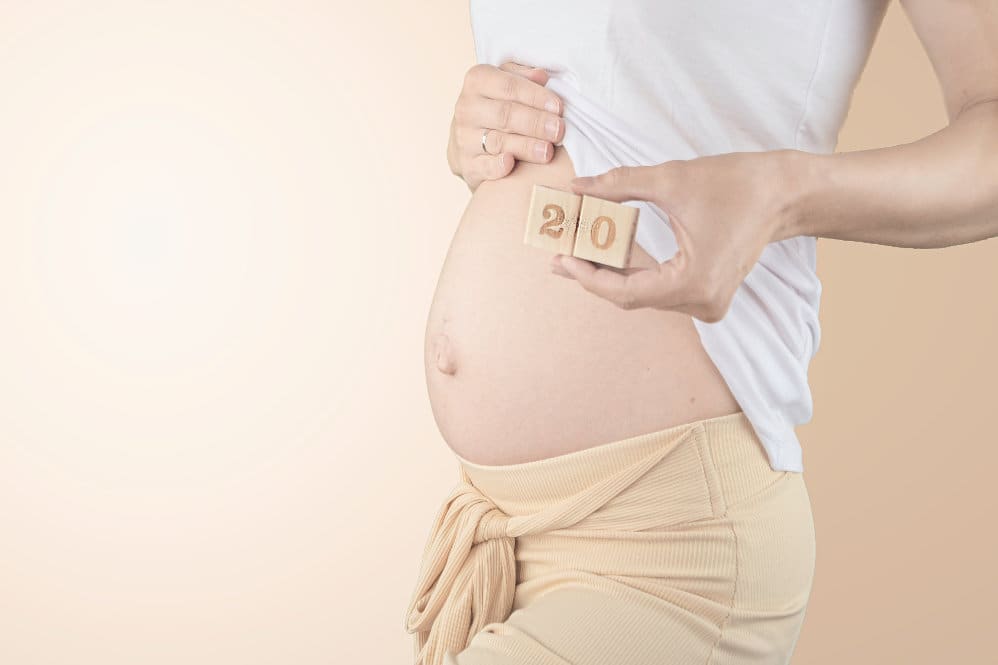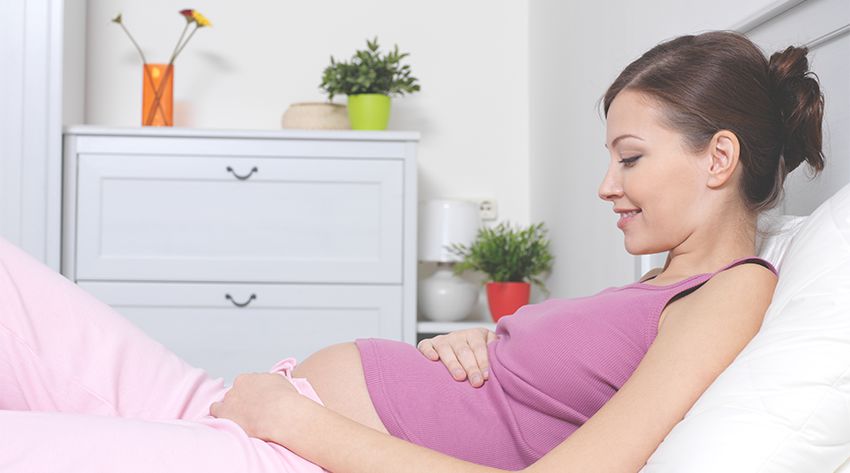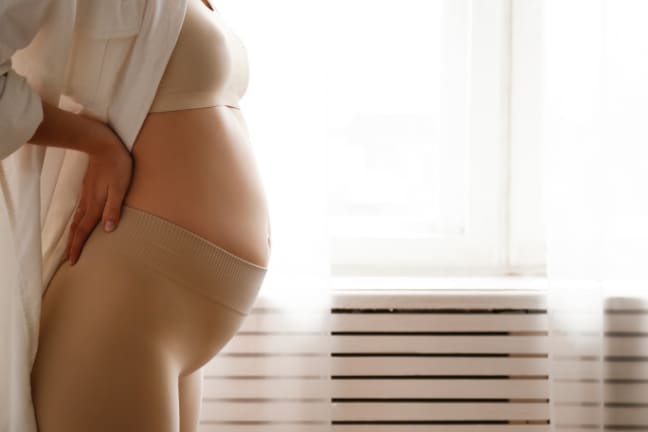Introduction
Can’t get enough kicks? Take a few moments to chill in a quiet room and you may notice them more. Bear in mind that babies usually have their most active phase in the evening between 8-11 pm and when you move around, you’re basically rocking them to sleep. Sadly, as a pregnant woman, you are at a higher risk of gum disease due to increased levels of progesterone, we have top tips to look after your teeth and gums. Read more on what to expect at 20 weeks pregnant.
What happens at 20 weeks pregnant?
At 20 weeks pregnant, your baby is the length of a banana and growing really quickly, especially when it comes to brain development. Thankfully that tiny body has finally started catching up with the head and baby is starting to look more in proportion and less like an alien.
The pancreas is starting to produce baby’s insulin, a hormone that regulates blood sugar levels. Insulin also allows baby to use sugar and fat for growth, and to stockpile it under the skin for birth. Clever little clogs.
Plus, if you’re having a girl, her ovaries are already equipped with enough primitive cells to produce six million eggs.
What happens to your body at 20 weeks pregnant?
The first time you feel your baby move inside you is like… wow! If you’re not feeling much yet, don’t worry, this is normal as baby movement at 20 weeks differ from mum to mum. At this stage you’ll only feel subtle movements: a twitch maybe, or a flutter. It takes some practise to recognise them when they come - patience and a bit of peace and quiet can help. If you have any concerns over baby’s movements speak to your midwife straight way.
Bear in mind that babies usually have their most active phase in the evening between 8-11 p.m., and when you move around, you’re basically rocking them to sleep. They can sleep up to 20 hours a day right now. Lucky baby. It’s usual for kicks against your tummy only to become really clear from the 25th week as baby and bump grow.
What to eat at 20 weeks pregnant?
Sadly, as a pregnant woman, you are at a higher risk of gum disease due to increased levels of progesterone. So, it’s important to resist donut temptation and control your sugar intake during pregnancy. Your gums can become swollen and bleed, and your teeth are more likely to be attacked by plaque too. Here’s a few ways to look after your teeth and gums:
-
Mouthwash is great for fighting plaque, just make sure it doesn’t contain alcohol.
-
Regular trips to the dentist are also important to keep your gums in good shape.
-
Throughout your pregnancy and right up to baby’s first birthday, you get free NHS dental care.
Remember to tell your dentist the names and dosages of all medications you are taking, including vitamins such as folic acid, as these may affect your treatment plan.
What are the symptoms of 20 weeks pregnant?
Week 20 pregnancy symptoms can include stretch marks. During your second and third trimester you may notice stretch marks starting to appear. These are small lines that appear on your skin as the baby grows and your skin starts to stretch. If you’d like, you can help soften the marks by rubbing creams or oils into your bump, boobs and bum. Even better, ask your partner to massage you for the maximum relaxation experience. For advice on safe oils to use in pregnancy, speak to your midwife. Read more about how to prevent stretch marks.
How to prevent toxoplasmosis in pregnancy?
Toxoplasmosis can be critical in pregnant women. It is transmitted from infected meat and faeces from infected cats. Many people will have had toxoplasmosis and not even known it but in pregnant women it can cause issues with baby so it’s best to be safe and take a few precautions. Symptoms of Toxoplasmosis include high temperature, aching muscles, tiredness, feeling sick, swollen glands and sore throat, but it is also worth noting that some people will have it but have no symptoms at all.
Here’s what to do to avoid toxoplasmosis in pregnancy:
-
Avoid emptying cat litter trays – if you have to, wear disposable rubber gloves and wash your hands thoroughly afterwards
-
Change your cat's litter tray daily – it should also be thoroughly cleaned every day using hot water, ideally not by you
-
Wear gloves when gardening. Even if you don't have a cat the soil can be contaminated with cat faeces
-
Don’t handle or eat raw, cured or undercooked meat like Parma Ham and salami











